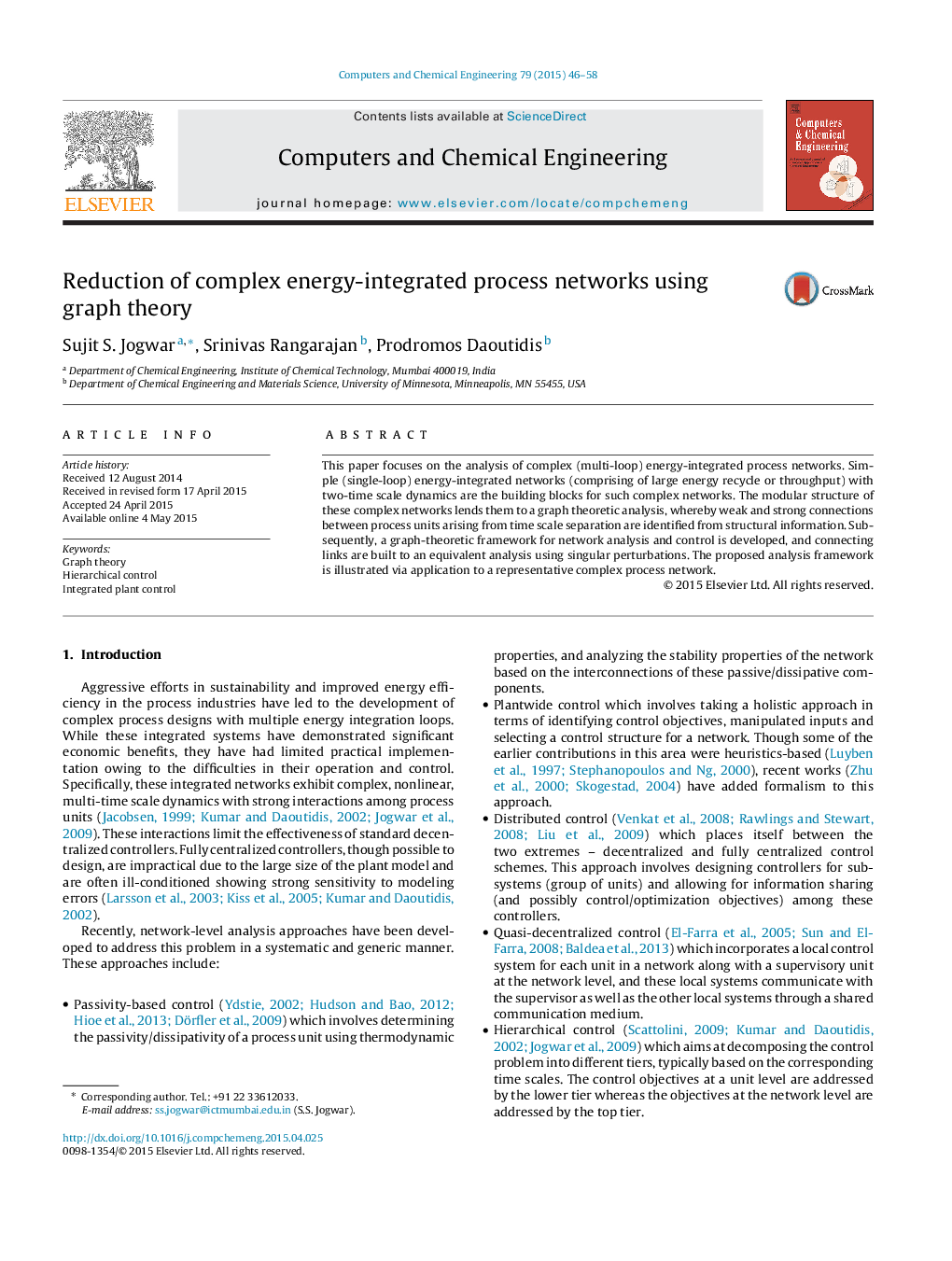| Article ID | Journal | Published Year | Pages | File Type |
|---|---|---|---|---|
| 172274 | Computers & Chemical Engineering | 2015 | 13 Pages |
•A graph theory-based algorithm is presented for the reduction of complex energy-integrated networks.•The algorithm automates the successive singular perturbations-based method.•The algorithm is fast, efficient and scalable to large networks.•An application to a naphtha reforming process is discussed.
This paper focuses on the analysis of complex (multi-loop) energy-integrated process networks. Simple (single-loop) energy-integrated networks (comprising of large energy recycle or throughput) with two-time scale dynamics are the building blocks for such complex networks. The modular structure of these complex networks lends them to a graph theoretic analysis, whereby weak and strong connections between process units arising from time scale separation are identified from structural information. Subsequently, a graph-theoretic framework for network analysis and control is developed, and connecting links are built to an equivalent analysis using singular perturbations. The proposed analysis framework is illustrated via application to a representative complex process network.
